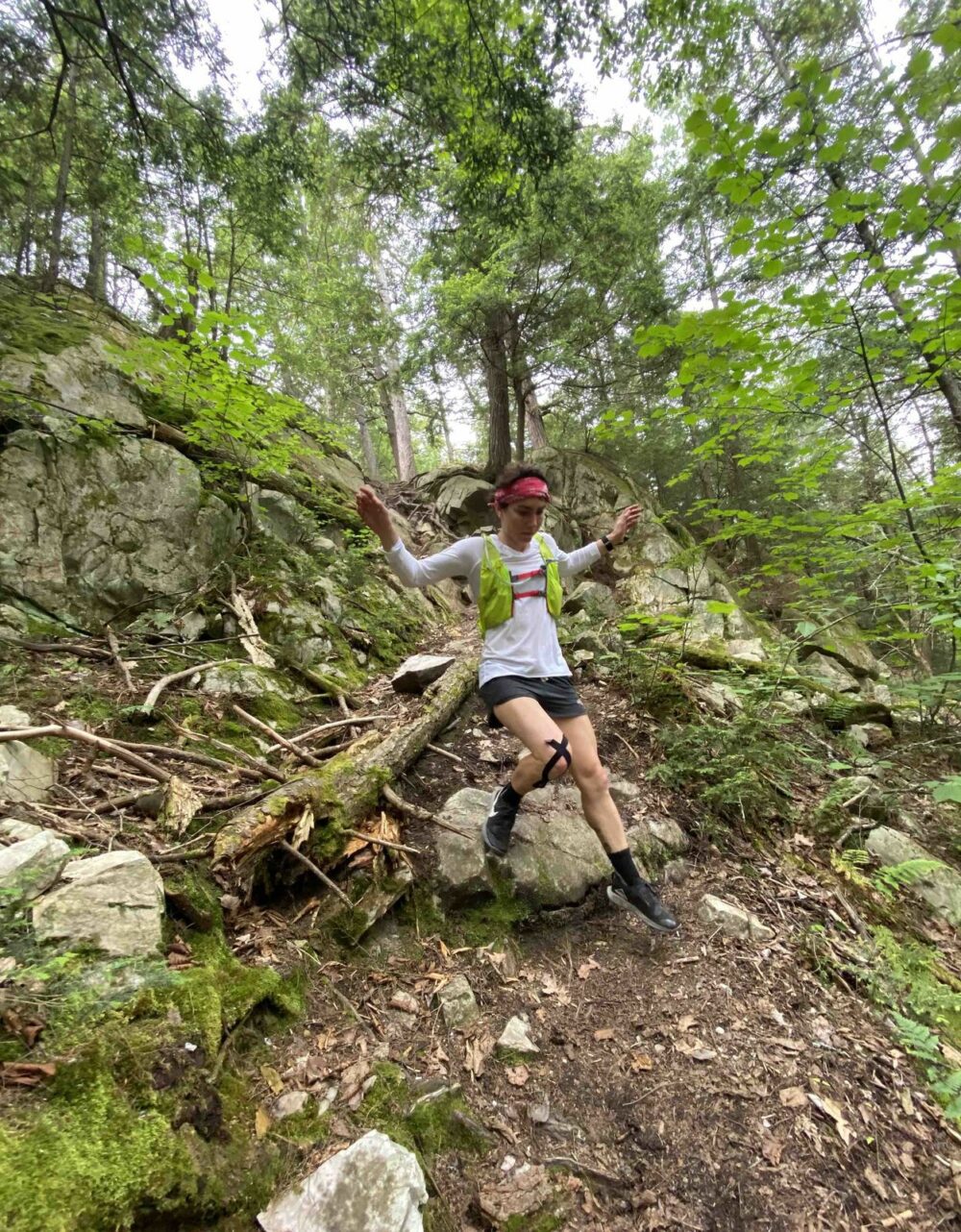THIS IS A REPOST: I wanted to bring this blog back to the top of our feed because it’s the time of year when people are thinking towards next season’s goals, and hearing what their friends/frenemies/teammates are planning. It’s tempting to take on too much… so I wanted to put together a list of questions to consider when you’re pondering a Big Scary Goal.
So, I (Molly) signed up for my first 100-miler running race several ago (eek!). The race is mid-February, and I’m pretty darn excited about it—and more importantly, I’m actually the most excited for how it’s motivating my training and getting me really excited. In the next couple of months, I’ll share a bit about my training for it and the actual race day prep, since it is similar to other big events (e.g. Ironman or Ultra-Endurance Cycling) in that there’s a lot of ‘other stuff’ involved since it’s such a long event. On the other hand, in some ways, it’s actually not that complicated compared to something like a cyclocross race, which, when done at an elite level, can include two or three bikes, many, many wheelsets, several clothing changes, plus everything needed for two days of racing. Funny enough, a running race that will take around 30 hours (this is a LONG 100-miler, with even the top women’s times never going below 30) is in some ways simpler than a bike race. But anyway, that’s not what we’re talking about today. Today, I wanted to start by breaking down how I decided it was time to sign up for this big scary goal and how scary the goal could be. Hopefully, this can help you choose a big scary goal that’s right for you—it’s tempting to fall into “big scary goal creep“, and that’s something that I thought about a lot before signing up for this.
Why do you want to do this event, at this time?
As you climb the ladder of success, be careful it is leaning against the right wall! Before getting too granular on the specific event, it is worth reflecting on if the big event type is exciting for you. Just because you have been a runner doesn’t mean you need to keep going longer/harder in running events or that you need to even be a runner anymore!
Peter added this section into this article because he finds that too often clients get signed up for events because friends are doing them or because they have done the event before. Take some time to reflect on what you want to do with the next year. The key is the training. If it is going to be really stressful to fit it in (Even to the point of disrupting your family/work) then wait for another year. If the training isn’t fun and what you are drawn to do then you likely don’t want to do the big event. I have had several clients tell me that they wish they found ‘x’ discipline sooner because they finally find something that is ‘easy’ to train for and that is available close to their home where a strong community can grow. They find that a local cyclocross series checks a lot of boxes and doesn’t involve nearly the time commitment and aligns with their strengths more closely.
- Is there a community and social experience that develops through the training and also through racing?
- Can you race your strengths?
- Is there a skill you can improve by doing this race (e.g. Peter did Ironman to learn to swim … it was a long year but it worked)
- Are you energized by the intensity of short races like crits, track or cyclocross or by the more solo distance events?
- Does one bike just frustrate you, while another one energizes you?
Too often we (yes us and you!) get caught up in the excitement of doing a big scary race but forget that we either really don’t want to prepare for it (e.g. we don’t like riding mountain bikes) or we don’t have space in our lives to prepare for that event right now (e.g. the challenge is too much for right now). The idea here is to align the training you want to do with a goal that will pull you to be better in that direction. There will be hard, miserable days but if you have the idea of getting ready to do more and the intrinsic enjoyment of riding your favourite bike on your favourite terrain more often then we start to see really great things happen. The ‘Why’ is nebulous but your doing the event should be obvious and clear. If it’s not spend a bit more time thinking about what a fun and engaging year for you might be.
In the questions below, we are assuming that this event is something that you want to do and one that you are excited about. Spend some time on this first question if you aren’t sure why you are doing the event and the idea of training for it seems like a drag. If you are excited about the challenge then proceed and try out these questions Molly asked herself before clicking the Registration button.
Looking at past experiences
I’m not exactly going from couch to 100-miler… While 100 miles sounds massive to me, when I break it down, I have done pretty big distances over the years. I’ve done multiple Ironmans, a few 50km races, a couple of 50-milers, a 100-km trail run/personal race, and quite a few 70+ mile weeks in addition to plenty of 25+ hour training weeks. I’m not a stranger to endurance. And as people maaaaay remember, we did have my coach, David Roche, on the podcast 2.5 years ago talking about my eventual goal of running 100-milers. A 100-miler is a goal that intimidates me, sure, but it doesn’t scare me—it feels well within my wheelhouse given my past experiences. It’ll be a stretch, but it’s not a huge leap.
(If you’re not sure about how your experience and current fitness stack up to your big scary goal, consider booking a coaching consult to chat about it! And remember, there are SO many big scary goal options out there, from a shift in discipline to going harder at the same distance you’ve been doing… going longer isn’t always the right big scary goal, depending on what you like doing and can make work with your lifestyle and schedule. In a lot of ways, I genuinely believe that a fast 5K is harder than a 100K race.)
Looking at overall health + lifestyle + fitness
Body-wise, I’m doing pretty good right now, with no major illnesses or injuries in recent years. Life-wise, I’m fairly well settled with work, I have routines in place and a pretty good flow with the writing that I do. I don’t have any huge events or trips for work between now and the event. And fitness-wise, I’ve been building a running base specifically for ultra trail racing for 3+ years and I’m comfortable with mileage similar to what I’ll be doing even in the highest mileage phases of training.
Asking, Can I prepare for this goal?
Do I have the time to fit in the training and everything that goes with it? That means having enough time to ensure that I’m eating often / enough and staying on top of nutrition, making time for enough sleep + recovery, and all the physical stuff. It also means the aforementioned look at the calendar to make sure no outside events will throw off my training by a significant amount. And it also means looking at our budget to ensure that the race signup, the hotel nights, the driving, and all the things I need for the race, like new sneakers, won’t be an issue.
RELATED: Can You Prepare for The Goal You Have Set?
Asking, Do I want to prepare for this goal?
Often, we’ve seen coaching clients who want to do a certain big scary goal but then when asked about their preferred training, the things they enjoyed doing were completely different than what they have to do in order to prepare for the goal. For me, a trail 100-miler means spending more time on trails, which isn’t always convenient, admittedly, but it is how I prefer to train anyway, so really, it’s pushing me in the direction of doing more of what I love.
Asking, What will I have to give up?
This is the last one that we like to ask, because every big scary goal will come with some sacrifices, even if they’re ones we’re willing to make. It’s just good to have them spelled out so they don’t come as a surprise later… and in some cases, you may realize something that you hadn’t thought of before that makes your big scary goal idea a non-starter. In this case, for me, it means giving up a bigger break around the holidays to really chill out with training and enjoy slothing around with my family (though I’ll still do that, just while sticking to a training plan). It also means more focused work and less time for sitting around pondering and refreshing email—more training time = work needs to be ultra-focused to carve out that time. Some social stuff has to get cut, from long weekend full-day hangouts to fun bike rides with friends that could fit in a normal training calendar, but not a super-focused one. And on the note of cross-training, while I can sneak in the occasional ride or ski, those aren’t going to be staples of my winter like they have been. And even thinking to post-race, I’ll miss a couple of weeks of training to recover.
Trusting my coach
While I’m a pretty independent, stubborn person, my initial decision that I wanted to do a 100-miler was that I wanted to just run it solo, on a chunk of trail that I enjoyed and thought would be fun. But my coach strongly suggested finding a race that I could do instead. So, I did + I think it’s going to be awesome. But more important than the specifics, if my coach had thought that I wasn’t ready for a 100-miler when I put it out there, I would have listened. Now, sure, maybe I would have argued about it a bit, but I know that my coach has values that align really similar to mine and Peter’s as athletes and coaches and that if he had said I wasn’t quite ready to tackle a 100-miler, it was for a good reason. I was pretty confident that I ticked the boxes that suggested I’d be ready to try for it, but I did make sure that I had him on board before I hit register.
Asking my person
In my case, this was Peter, but in your case, it may be a parent, your kiddos, or your boss, depending on what’s up in your life right now. But before I signed up, I did run it by Peter because it a) obviously will affect our schedule since he now has to go to Oklahoma and crew for me, possibly do some pacing and b) because even if he wasn’t going to come to the race itself, I would want to be able to talk about training with him, know that I had his support, and on a more practical level, I needed him to be on board with the fact that my training volume will increase (though not drastically, since I already run reasonable volume) and will become more specific/important to complete, since the race is only 3 months away. While I don’t think you need your partner to be 110% on board and willing to take over all household duties etc. while you pursue your goal, at the very least, I think it’s important that they’re unopposed to it.
Getting excited
Because if you’re not excited about it every damn day, what’s the point?
(I’ll likely write more on this later, but I recommend the Countdowns app for iPhone since it allows you to put a widget on your home screen counting the days till your big event. It’s an awesome way to be reminded on the daily how close your event is getting.





